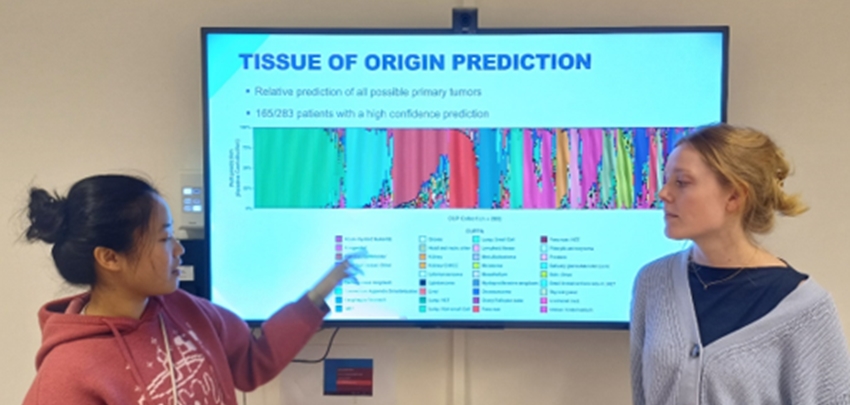Unveiling the Complex and Enigmatic Biology of Cancer of Unknown Primary through their Genomic Landscape

Status: Ongoing.
The biology of Cancer of Unknown Primary (CUP) remains largely elusive. Advances in DNA sequencing technologies now enable the identification of tumor-specific mutations with remarkable precision. In clinical practice, these genetic insights are predominantly utilized for two purposes: predicting the likely primary tumor site, as exemplified by the Cancer of Unknown Primary Prediction Algorithm (CUPPA), and identifying actionable genetic mutations that can guide targeted therapies regardless of the primary tumor’s origin.
At Erasmus Medical Center Rotterdam, we analyze the complete DNA sequences and clinical data of 283 CUP patients, a dataset provided by Hartwig Medical Foundation, the Center for Personalized Cancer Treatment, and multiple Dutch hospitals and clinical studies.
Our research seeks to uncover the key biological mechanisms underlying CUP, including factors driving its aggressive behavior, mechanisms of immune evasion, and interactions with the surrounding microenvironment. Additionally, we integrate our results with DNA-based primary tumor predictions and potential actionable genetic mutations. This comprehensive approach aims to elucidate the genetic drivers behind CUP's unique characteristics, offering insights that could pave the path for more effective treatments of CUP patients.
Rosan Olsman, Wenya Wang and Harmen van de Werken, Department of Immunology Erasmus Medical Center.